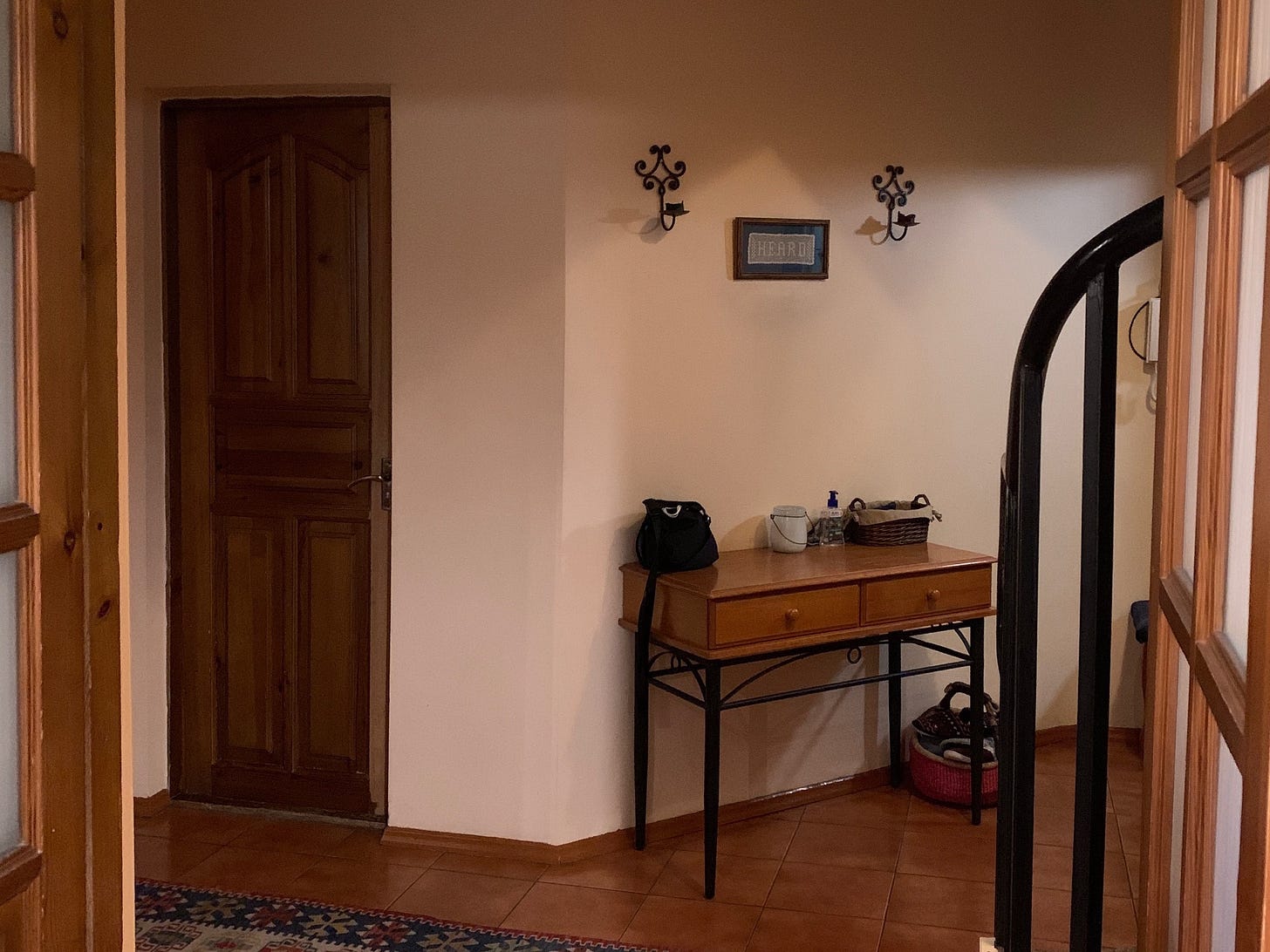My childhood home was a tall and narrow three-story house that sat behind a fence in a suburban neighborhood. Standing on the second floor, we could look from our house across the alley and into the yard of a mansion that purportedly belonged to the brother of the country’s president. Our house was no mansion. In fact, it was somewhat dingy, to be honest, and the contrast to our neighbor was a picture of the absurdity that is post-Soviet architecture.
My older brother and my parents each had rooms on the top floor of our house. My bedroom and my sister’s bedroom were on the second floor, as were the living room and my father’s office. Finally, on the first floor we had the entry room, the kitchen and dining area, a bathroom and laundry room, and finally what my family so affectionately referred to as the banya.
In Kazakhstan, many houses have built-in banyas, which are traditional Russian saunas or steam baths. Our banya, however, had been converted by the expat family who had lived in our house before us into a recording studio with blue carpeted walls to make the room soundproof. My parents, in turn, transformed the recording space into a storage room and the mixing room directly adjacent to it into an office for my mother. Both rooms that made up the banya — the storage space and my mother’s office — became sacred to me at different points in my childhood.
My mother’s office was a small cozy room which, apart from the carpeted and wood-paneled walls, had a large window that looked out onto one of the fences of our yard. She had a large armchair that faced the window. A quilt hung on the wall above that chair and there were a few shelves for books. My mother had covered a smaller window that had once connected her office to the recording studio with photos of family, friends, and other loved ones. Since it only had one window and the walls were covered, the room remained cool, which made it nice, especially in the summer. Whenever I entered, I always sensed that I was coming into a holy place.
My mother is a woman of prayer. Some of my fondest memories of childhood involve sneaking into her office early in the morning to find her in her chair with her massive, tattered Bible opened in her lap. I knew that when I found her like this, she was often praying for me and my siblings. My mother’s office eventually became my own prayer closet. As I grew older, I came into the habit of praying there, as she did, seated in her chair. Some of my first personal encounters with God were sitting in her chair.
The studio adjacent to it was significant for the same reason. The room was extremely dark since it had no windows, and for much of my childhood it was cluttered with stuff. By the time I graduated high school, my parents had mostly cleared it out. All my friends moved away from Almaty early that summer and my own departure was delayed a little, so apart from writing, I spent hours upon hours locked away in that room praying because, honestly speaking, I had nothing better to do. The room was soundproof and so I prayed out loud. Little did I know, soundproof as it was, someone was always listening. The hours I spent there proved to me that God hears us when we call to him.
My childhood home has passed on from my family’s possession. Even so, I write about the banya because I have come to the conviction that part of what is required to love places well involves remembering the places where we were loved well. In the banya, I encountered not only my mother’s love, but also God’s love in a way that shaped me into who I am today.
There was nothing particularly special about the banya. My mother’s office was cozy, and she did what she could to make it beautiful, but in truth the conflating purposes that the space served throughout the years likely made it an unusual sight to visitors. Even so, in my eyes, there is hardly a place so beautiful on the earth.
To love a place well involves first and foremost to love those who belong to it. The places we love most are often the places where we are loved most. We want to stay where we know we are loved, and we tend to care for the places where we want to stay. In this way, when we love one another, we bless the places where we live and help others live in them well.
I am struck by the example of Joshua lingering at the tent of meeting even after Moses would return to the Israelite camp in Exodus 33:11. What did he encounter there? What did he see? I can’t help but want to go to that place.






I remember that house so well! First with the former owners, and then with your family. For house church, holidays, and during our last year, Monday nights were soup nights. Chandler was with us that fall, and your mother's delicious soups felt like home and love and care for us all. Our wedding was planned by your dad and Steve in your living room! And it worked out according to their plan many months later! You have given me new insights into that home. Thank you, Michael.